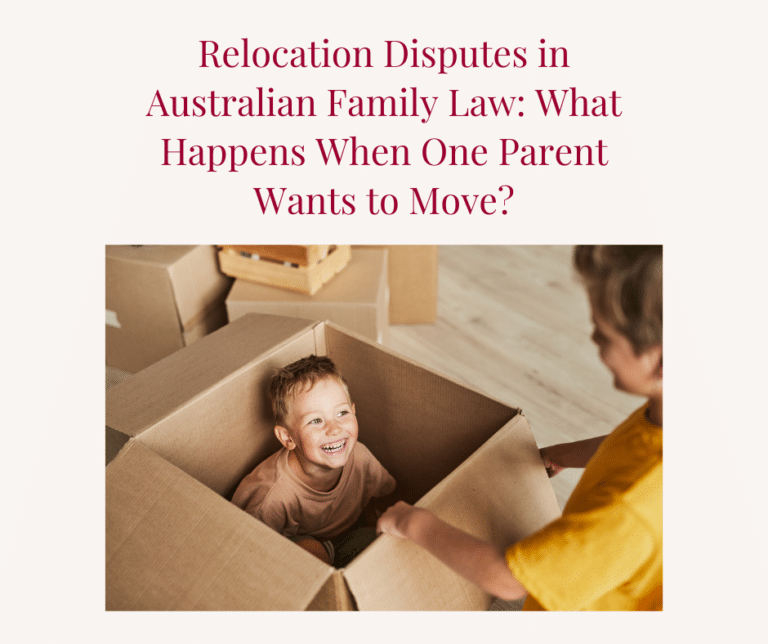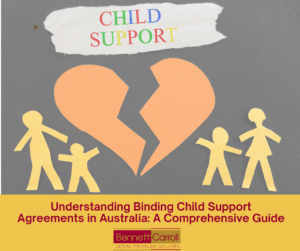Relocation disputes are an increasingly common issue in Australian family law, particularly as more families face the complexities of co-parenting across different cities, states, or even countries. When one parent wants to move with their child, it can create significant tension and raise legal questions about the child’s best interests. This article explores the key aspects of relocation disputes in Australian family law, offering guidance on how to navigate these challenging situations.
What Is a Relocation Dispute?
A relocation dispute occurs when one parent wishes to move to a new location with their child, and the other parent does not agree to the move. The move could involve relocating to a different city, state, or even overseas. Relocation disputes are often complex because they involve balancing the rights of the relocating parent, the rights of the other parent, and, most importantly, the best interests of the child.
In these cases, the Family Court may be called upon to make a decision if the parents cannot reach an agreement. The court will focus on what is in the best interests of the child, which is the primary consideration in any family law matter.
The Best Interests of the Child
When determining whether to allow a relocation, the Family Court will consider a range of factors, all centered around the best interests of the child. These factors include:
- The Child’s Relationship with Both Parents: The court will assess how the relocation will impact the child’s relationship with both parents. A key consideration is whether the child will be able to maintain a meaningful relationship with the non-relocating parent if the move is permitted.
- The Reason for the Relocation: The relocating parent’s reasons for the move will also be considered. Common reasons include employment opportunities, family support, or a desire to improve the child’s quality of life. The court will weigh the benefits of the relocation against the potential disruption to the child’s life.
- The Practicality of Maintaining Contact: The court will examine whether it is feasible for the non-relocating parent to maintain regular and meaningful contact with the child after the move. This might involve considering travel costs, the availability of communication methods such as video calls, and the child’s age and ability to manage travel between locations.
- The Child’s Views: Depending on the child’s age and maturity, their views on the relocation may be taken into account. Older children who can express their preferences may have a significant influence on the court’s decision.
- Stability and Continuity: The court will consider how the relocation will affect the child’s stability, including their education, social connections, and overall well-being. Disrupting a child’s routine and community connections can be a major consideration in relocation disputes.
What Happens When Parents Disagree?
If parents cannot agree on a relocation, the parent wishing to move will need to apply to the Family Court for permission to relocate with the child. The other parent can oppose the application and present their case as to why the relocation is not in the child’s best interests.
Once the matter is before the court, both parents will need to provide evidence to support their positions. The court may also appoint a family consultant or an independent children’s lawyer (ICL) to provide additional insights into the child’s needs and the potential impact of the relocation.
Possible Outcomes
The Family Court has the discretion to make a range of orders in relocation disputes. Possible outcomes include:
– Approval of the Relocation: If the court determines that the relocation is in the child’s best interests, it may grant permission for the move. In such cases, the court will often make orders about how the child will maintain contact with the non-relocating parent, which may include arrangements for visits, holidays, and virtual communication.
– Refusal of the Relocation: If the court finds that the relocation is not in the child’s best interests, it may refuse the application. In this scenario, the relocating parent will need to decide whether to stay in their current location or relocate without the child.
– Alternative Arrangements: In some cases, the court may approve a compromise, such as allowing a partial relocation or making other adjustments to the parenting plan to accommodate the needs of both parents and the child.
Mediation and Alternative Dispute Resolution
Before turning to the court, parents are encouraged to try to resolve relocation disputes through mediation or other forms of alternative dispute resolution (ADR). Family dispute resolution (FDR) services can provide a neutral environment where parents can discuss their concerns and work towards a mutually acceptable solution.
Mediation can be a less adversarial and more flexible way to resolve relocation disputes, and it allows parents to retain more control over the outcome. If successful, mediation can save time, reduce legal costs, and help preserve the co-parenting relationship.
Legal Advice Is Essential
Relocation disputes are legally and emotionally complex, and it is crucial for both parents to seek legal advice as early as possible. A family lawyer can help you understand your rights and obligations, assess the strength of your case, and guide you through the legal process.
If you are considering relocating with your child, or if you are concerned about your co-parent’s intention to move, getting the right legal support can make a significant difference in achieving a fair and child-focused outcome.
Conclusion: Balancing Family and Future
Relocation disputes present unique challenges for families and the courts alike. While parents may have legitimate reasons for wanting to move, the paramount consideration in any decision must be the best interests of the child. Whether through court intervention or mediation, the goal is to find a solution that respects the rights of both parents while ensuring the child’s well-being and stability.
If you are facing a relocation dispute, understanding your legal options and seeking expert advice can help you navigate this complex process and find a resolution that works for your family. Relocation disputes can be emotionally and legally complex, but with the right legal support, you can protect your rights and your child’s well-being. If you’re dealing with a relocation dispute in Brisbane, Gold Coast or Sunshine Coast or across Queensland, contact our experienced family law team for expert advice.
We are here to help
At Bennett Carroll Solicitors, we are experts in all areas of children law and family disputes. Whether you’re the parent wishing to move or the one opposing it, we can help guide you through the process to achieve the best possible outcome for your family.
Call us today at 1300 334 566 to book a consultation at one of our South East Queensland offices in Brisbane, Gold Coast, or Sunshine Coast. Visit our website for more information on family law and children law services.
Other useful links:







